Helping our faculty to thrive throughout their career is a priority for
the UW School of Medicine.
The Faculty Coaching Program is focused on professional development of our faculty given the positive impact on leadership development, well-being, and supporting them and their teams. This program is growth-oriented with a goal of improving job satisfaction and providing support for faculty at career transition points, particularly those who have moved into or are considering leadership roles. Faculty in biomedical research or clinical departments are welcome to apply.
On this page, you will find information about each of our coaches and frequently asked questions about the program.
Meet our Coaches
Read their bios and availabilities below the photos
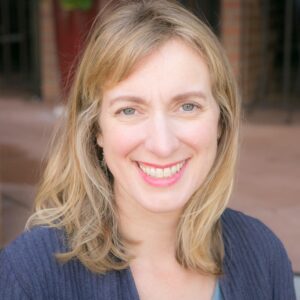
Alex Molnar, MD (she/her) |
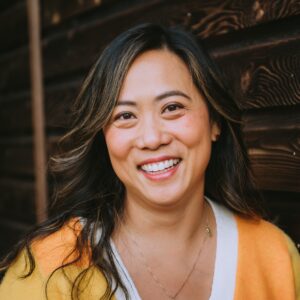
Grace Shih, MD, MAS (she/her) |
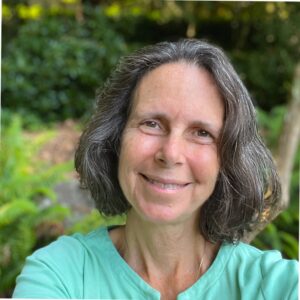
Sherilyn Smith, MD (she/her) |
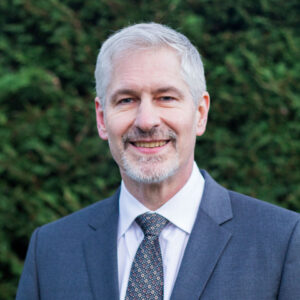
Mark Whipple, MD, ScM, FACS (he/him) |
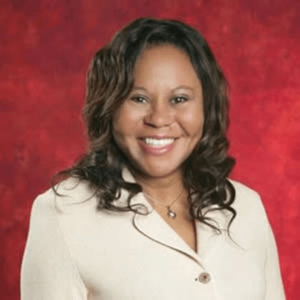
Michelle Terry, MD (she/her) |
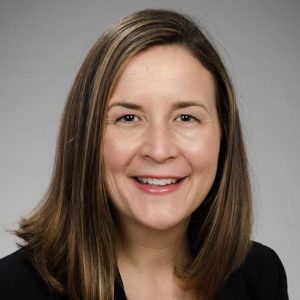
Giana Davidson, MD, MPH (she/her) |
Coach Bios and Availabilities
All of the coaches have received ICF professional coach training
Alex Molnar
General availability: Monday, Wednesday, and Thursday
I partner with faculty of the UW School of Medicine to explore their own values and strengths so they can move forward joyfully in their life and career.
Alex enjoys working with individuals to identify their strengths and leverage those toward achieving their goals. She is continuously exploring resources to support her clients better.
Alex is a Clinical Associate Professor at the University of Washington School of Medicine, a practicing internist with over 20 years of experience in academic medicine, and an ICF Associate Certified Coach (ACC). She has successfully coached medical students, residents and faculty through both formal and informal coaching relationships. She is a committed teacher and believes that coaching in healthcare is a powerful tool for growth and joyful practice. To this end, she has developed and delivered faculty development workshops on coaching. Alex’s goal within this work has been to support people in their growth through personal discovery and purposeful action.
Alex trained as an internal medicine physician and provides primary care to refugees and immigrants at Harborview’s International Medicine Clinic. She also attends on the inpatient medicine wards. Her career has included many aspects of academic medicine, including translational and medical education research, providing clinical care in a tertiary care hospital, and educational program development and program administration. Alex has honed her skills as a coach working with medical students as a college mentor and college head over a decade and through work with residents and faculty. She finds satisfaction in asking thought-provoking questions and assisting individuals in uncovering joy within their work and creating a path forward.
Grace Shih
General availability: Monday, Tuesday, and Thursday afternoons
I help people integrate their strengths and values into all aspects of their lives.
Grace envisions coaching as a creative and collaborative process built on trust. She recognizes that every person possesses inherent strengths and fundamental values that play a pivotal role in crafting a fulfilling life. She enjoys helping others gain insights on their strengths and core values, so that they can find and maintain joy in their careers. Grace believes in the coaching tenet that every person is creative, resourceful, and whole and has the answers within themselves.
Grace has dedicated her career to faculty development. Her interest in coaching emerged from observing its profound effect on fostering support and empowerment for sustained, meaningful career satisfaction. Building upon this foundation, she remains committed to honing her coaching abilities and is actively pursuing her ICF certification to enrich her expertise.
Grace’s specific areas of coaching interest include overwhelm and priorities management, work life integration, navigating career transitions, enhancing leadership skills, and managing conflict. Grace is committed to supporting female identified faculty, BIPOC faculty, and faculty from other marginalized groups within academic medicine. Grace’s coaching is not only about professional growth but also about personal well-being and resilience.
Grace is an Associate Professor at the University of Washington (UW) Department of Family Medicine. She has been in academic medicine for 15 years and has focused the last 5 years on faculty development. Grace trained as a family physician and completed a fellowship in family planning. She is Director of the Washington, Wyoming, Alaska, Montana, Idaho (WWAMI) Family Medicine Residency Network (FMRN) and Co-Director of the UW Reproductive Health Advocacy Project (RHAP) Fellowship. She has clinical practices at UWPC Northgate and Planned Parenthood.
Sherilyn Smith
General availability: Monday – Wednesday
I partner with leaders to connect deeply with their own values and strengths so they can empower others to move their organizations to the next level of excellence.
Sherilyn is Professor Emerita at the University of Washington, a retired academic pediatrician and an ICF Associate Certified Coach (ACC) with over 30 years of experience in academic medicine in the U.S. Her deep knowledge of the roles and responsibilities of academic faculty informs her coaching focus and approach. Sherilyn’s areas of coaching expertise include developing leadership skills, optimizing scholarly productivity (including grant writing and manuscript preparation), program development, navigating the promotion process, transitioning to retirement, increasing satisfaction with clinical responsibilities, enhancing teaching abilities and developing long-term career goals.
Sherilyn’s coaching approach is person-centered and leverages appreciative inquiry, foundations of contemporary neuroscience and design thinking. She works with clients to identify their core values and individual strengths to co-create a safe space for productive experimentation toward achieving their goals. She is continuously exploring and leveraging concepts and techniques from a wide variety of leadership and coaching fields to meet her client’s needs.
Sherilyn has successfully coached mid- and late-career faculty transitioning into new leadership roles, participating in institutional strategic planning, negotiating workplace relationships, and planning the next phase of their careers. She is a passionate teacher and believes that coaching in healthcare is an underutilized leadership approach. To this end, she works with other coaches to develop and deliver faculty development sessions about coaching and its application in academic medicine at the national level.
Sherilyn trained as a pediatric infectious disease physician and provided care to families and children with complex medical problems at Seattle Children’s Hospital. Her career has included all aspects of academic medicine, including basic science and medical education research, providing clinical care in a tertiary care children’s hospital, educational program development and program administration for all levels of undergraduate and graduate medical trainees. She held multiple leadership positions at the University of Washington, including Co-director of Pediatric Undergraduate Medical Education, Head of Big Sky College (a learning community at UWSOM), Co-Chair of the Educational Quality Improvement and Strategic Planning Committee and Chair of the Curriculum Committee. Sherilyn also has served in national leadership positions in several medical education organizations in pediatrics and as the chief academic officer for an educational nonprofit, Aquifer Inc (www.aquifer.org).
Mark Whipple
General availability: Monday – Thursday
I help faculty explore their strengths and values in order to set and achieve goals and create meaningful and rewarding careers.
Each of us has the capacity to define our goals and shape our future. In over two decades at the UW School of Medicine (SoM), Mark has had the opportunity to explore multiple roles within research, the clinical enterprise, and the School of Medicine. As a coach, he is dedicated to helping faculty gain clarity about their own values, passions, and goals. By fostering self-awareness, he aims to enable faculty to make informed decisions and plans that align with their authentic self.
Mark is a Professor of Otolaryngology-Head & Neck Surgery with a joint appointment in Biomedical Informatics and Medical Education. He is a Board Certified Coach (BCC). During his time at the UW SoM he has gained insight into the complex roles and structures of academic medicine. Through multiple positions at the UW SoM, he has formally coached faculty, residents and medical students. Using an approach of active inquiry, he helps faculty harness their internal and external resources and develop plans of action to achieve results. Mark especially enjoys coaching in the areas of career growth and transition, taking on leadership roles, and thinking strategically around complex challenges.
Michelle Terry
I work on helping clients practice affirmation and resilience techniques to enhance focus, make connections, and achieve their goals.
Michelle is the Assistant Dean for Underrepresented in Medicine and Science (URMS). At the core of Michelle’s coaching philosophy is the belief that every individual possesses a unique combination of talents, aspirations, and accomplishments and by fostering growth and adaptability, the individual will navigate career circumstances with confidence. Through coaching Michelle helps the client develop a deep sense of purpose and alignment with skills, values, and ambitions. By embracing authenticity and integrity in their professional pursuits, she empowers people to define success on their own terms.
Michelle is a Clinical Professor in Pediatrics at the UW SoM, and has had several roles in clinical care, medical education, medical regulation, and advocacy. Michelle has been a PCP in a physician owned private practice; a PCP in a multispecialty clinic; and currently works in the division of hospital medicine at Seattle Children’s where she provides inpatient medical care. Service to the medical school includes membership in several standing committees; a former chair of the Committee for Minority Faculty Advancement (CMFA); former director of a pre-matriculation program (PreMat); and a former inaugural member of the College Faculty (a longitudinal student learning community). She has also been chair of the Washington Medical Commission; president of the King County Medical Society; delegate to the Washington State Medical Association; and serves on the American Academy of Pediatrics Committee on Medical Liability and Risk Management.
Giana Davidson
I am dedicated to coaching individuals navigating complex transitions to develop a cohesive next chapter of personal and professional fulfillment. My appreciation for coaching began in the exploration of a foundational belief: each person is the expert on their own journey, inherently whole, resilient, and possessing the capacity for growth.
Giana is the Interim Associate Dean for Faculty Affairs. Within this role she has focused her work on building and supporting programs in leadership and professional development. She values the mission of the UW School of Medicine Office of Faculty Affairs is to support and empower our community of faculty to learn, grow, and thrive. Giana has held several leadership roles across UW Medicine including Chief of Staff for UWMC Medical Director for Post-Acute Care, Associate Medical Director for Utilization Management at UWMC, and is currently a Professor of Surgery and the Section Head for Emergency General Surgery at UWMC.
Giana has successfully coached people across their careers from students to people considering retirement and pivoting with major career transitions. Through active inquiry and deep listening, she employs reflective tools that explore core values, strengths, and saboteurs, fostering the development of well-defined goals and personalized strategies. She recognizes the transformative power of genuine engagement and meaningful dialogue, working to build trust and challenge limiting beliefs to empower people to take their next best step.
Giana’s research focuses on patient-centered health outcomes through comparative effectiveness trials. She has led several large randomized clinical trials and has been funded by PCORI, NIH, AHRQ, CMS, and other foundation awards. She finds great joy in mentoring and coaching faculty, post-docs, and graduate students in developing their research and planning their career arch. She employs a coaching approach to support them in developing a research plan centering the questions and topics for which they are passionate.
Outside of her activities across UW Medicine, Giana is a novice ceramics artist and experienced “sideline” basketball coach. She can often be found at her teen’s sporting events, muddy in her studio or urban farm, or escaping to the Pacific Northwest mountains and Whidbey Island.
FAQ’s about the Faculty Coaching Program
What is coaching and how does it differ from mentoring?
Our coaches have undergone International Coaching Federation Executive Coach and Leadership Training and employ inquiry as a core strategy. They center the individual they are working with to develop a vision and plan centering the individual faculty’s values, goals, and personal growth rather than offering directives. The coaching relationship is confidential, short-term, and dedicated to empowering faculty by enhancing skills, self-awareness, and self-management.
Your coach may not be from the same area of research or clinical practice and certainly will have experienced different challenges in their career. The coaching training and philosophy recognizes each individual as inherently resourceful, creative, and capable of identifying their best path forward.
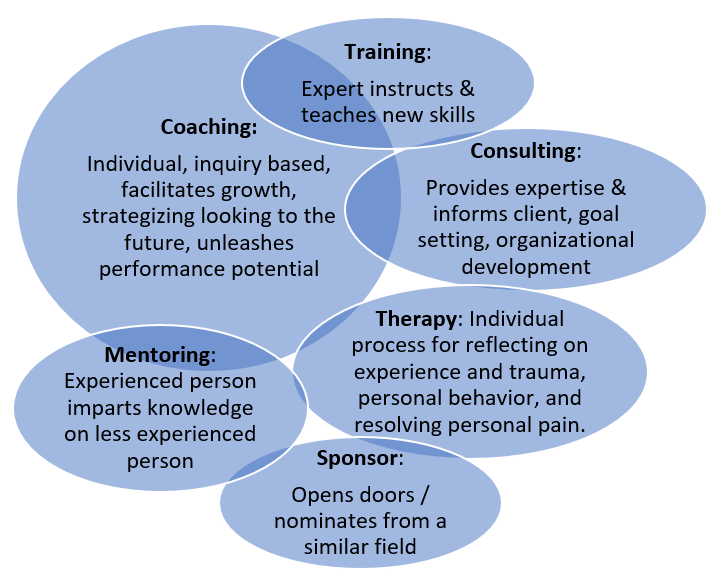
Individuals will need different resources at various times throughout their career and life. Coaching is one of many tools rather than a replacement.
Two additional resources offered at UW SoM to be aware of are Peer to Peer Program and the Washington Employee Assistance Program (WA EAP).
Should I consider coaching?
Many leaders, including those in academics (locally and nationwide), have found coaching to be a valuable tool for leadership and career growth. It is one of many tools to help support you in career growth and here are some things to consider as you decide if coaching is for you:
- Coaching involves effort and commitment but it is a valuable investment in yourself. We are all often quick to volunteer to support our team, mentees, students, or patients but it is hard to find time to dedicate to ourselves. By dedicating time and energy to the coaching process, you’re giving yourself the opportunity to set meaningful goals, strategize your next steps, and take actionable steps towards achieving them.
- Assess your schedule to ensure you have sufficient time to dedicate to coaching sessions and any tasks or reflections between sessions. In general, it works best to meet with your coach twice each month (usually for about an hour) and spend an additional hour a week to continue moving towards your personal goals.
- Have a clear understanding of what you want to achieve through coaching. Identify specific areas of your life or work where you seek improvement, change, or development.
- This is an internal UW SoM program. Our 6 coaches are all trained via ICF and your discussions will be confidential. Our goal was to train and grow our program for long term sustainability for our faculty. An internal coach may have a deeper understanding of your work and the organizational culture. However, you may prefer an outside, fresh perspective. Outside coaching is not covered by this program.
- Still unsure? The first session is an introduction and review of the program and contract. A small percentage of people decide it is not the right program or time for them and can withdraw. You can also discuss the program, options, or any questions prior to signing up by reaching out to Giana Davidson, MD MPH at ghd@uw.edu or schedule directly here.
What types of coaching do you offer?
- 1:1 Coaching in our program is personalized coaching where a coach works directly with an individual faculty member. This is the highest demand program with the longest wait time. In this format, the coach focuses entirely on the needs, goals, reflection, and development of the individual person. These sessions occur once every 2-3 weeks for 50-minutes by Zoom over 6 sessions. You can add up to 6 additional sessions with your coach if needed. You are responsible for scheduling your own coaching sessions.
- Group Coaching: This program is currently in the pilot phase. In group coaching, participants benefit from shared experiences, perspectives, and insights, creating a rich learning environment and building networks where individuals can learn from and support each other. Group dynamics often create momentum and accountability, leading to accelerated progress towards individual goals. The group’s collective energy and motivation can inspire participants to act and make meaningful changes in their lives. The emphasis here remains on each individual participating within the group. Check back for more information or reach out to somfacultycoaching@uw.edu if you are interested or want more information.
- Design Thinking Workshops: We recently launched day-long workshops using design thinking principles. These have approximately 16 people per workshop focused on their career and designing the “next phase.” We use the problem-solving methodology that originated in the design field, focusing on understanding user needs, ideating creative solutions, and prototyping and testing those solutions iteratively. These workshops are led by our coaches and approach the challenges faculty bring with creativity, empathy, and a bias towards action, empowering them to achieve meaningful and sustainable results.
I have a faculty colleague who is having a problem with professionalism; can a coach in this program be used for this reason?
No, this coaching program is for self-directed leadership development, well-being, and to support our faculty thriving in their academic careers.
Response to remediation is outside the scope of this program and handled within School of Medicine departments. If you have questions for resources, please reach out to Trish Kritek, MD EdM, Vice Dean for Faculty Affairs pkritek@uw.edu or Giana Davidson, MD MPH, Interim Associate Dean for Faculty Affairs, at ghd@uw.edu
Shouldn't I be coached by someone in my field/track or with similar experience?
Having coaches with different perspectives can be highly beneficial for several reasons: first, coaches with different backgrounds, expertise, and experiences bring different perspectives to the process. It is often harder to coach someone in the same field because it is so easy to slip into simply giving advice without fulling understanding a person’s goals, perspectives, and values. One of the goals of coaching is to overcome limiting beliefs and to consider alternative viewpoints. Consider this – if you have shared a department, you might share these same limiting beliefs! A coach outside of your area will draw on different theories, methodologies, and approaches they learned in training to address the multidimensional aspects of your life, work, and goals.
Who will be my coach?
We have four coaches available for one-on-one sessions: Alex, Grace, Mark, and Sherilyn. Please review their bios and general availability on this page.
I am in queue waiting for coaching. How long will my wait be?
Each coach has a cohort of faculty they are coaching for 3-6 months.
If you want to check the status of your wait, please email somfacultycoaching@uw.edu and we will try to give you an estimate.
If you are in queue and/or need more immediate support, please reach out to Giana Davidson, MD MPH, Interim Associate Dean for Faculty Affairs, at ghd@uw.edu or schedule directly here. You may also reach out to Michelle Terry, MD, Assistant Dean for URMS Career Development by emailing mterry@uw.edu. Drs Davidson and Terry are also trained as coaches and have extensive experience in supporting faculty development.
I can't imagine having the time. What is the process?
We recognize the challenge of lack of time. In fact, this is a common reason people seek coaching! Your career is important and should not be left only to nights and weekends to consider your next steps. Our coaches have FTE dedicated to meeting with you during the weekday work hours. All 31 School of Medicine Department Chairs and your Dean have supported this program for career development, and it may take some rearranging to find an hour to meet with a coach.
Logistics:
Meeting #1: 50 min via zoom
Introduction 1:1 with a coach that you choose.
You will discuss the program, expectations, review the coaching contract, and discuss your coaching needs.
Meeting #2-6: 50 min via zoom
We find coaching relationships are most successful when you meet with your coach every two or three weeks. Given the challenges of scheduling, we recommend scheduling all 6 sessions if possible as a commitment to yourself and rescheduling if needed. If at the end of these 6 sessions, if you need additional sessions, you can schedule up to 6 more.
